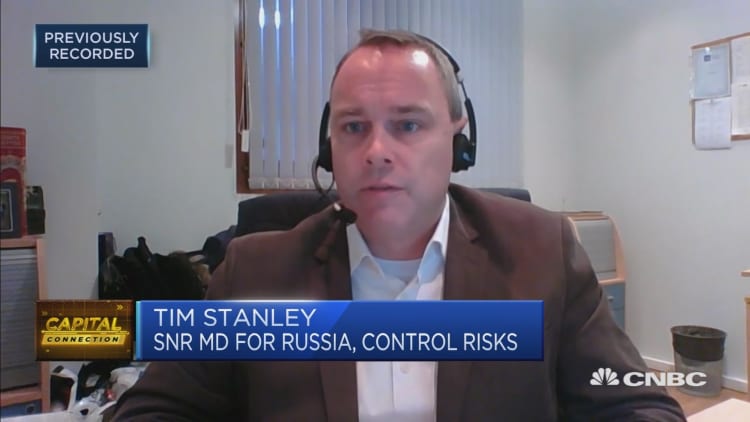A decision by Ukraine's constitutional court to row back on a key anti-corruption law may have repercussions for the country's relationship with the International Monetary Fund (IMF).
This week, Ukraine's constitutional court rejected an anti-corruption law that would have made the illegal enrichment of officials a criminal act, according to a state news agency. And the decision cannot be appealed.
Introducing anti-corruption laws is a key component of the international aid for Ukraine, and crucially was one of the conditions that it had to meet as part of its $17.5 billion bailout package from the IMF.
"Any about-turn in the anti-corruption reform would be a huge blow to Ukraine's relationship with the IMF and other Western partners — indeed, the EU has already expressed their concerns about the latest development," Liza Ermolenko, an emerging Europe economist at Barclays, told CNBC Thursday.
The court ruled that provisions of the article within the country's criminal code failed to comply with the principles of law and the presumption of innocence until proven guilty, according to state news. Critics of the law reportedly said that "the article on illegal enrichment obliges the suspect to prove (the) legitimacy of his revenues' origin, whereas the law places the burden of proving wrongdoing solely on the side of prosecution."
Bailout program
Unveiled in March 2015, the IMF's four-year bailout program aimed to boost Ukraine's ailing economy and public finances after investor confidence in Ukraine took a hit following Russia's annexation of Crimea in 2014 and the pro-Russian uprising and conflict in the east of the country.
As it sought to exit that program, Ukraine was granted a 14-month standby aid arrangement (essentially a credit line) worth $3.9 billion in December 2018, by the IMF and World Bank, to help it meets its financing needs and to consolidate reforms.
In a statement announcing the aid, the IMF insisted on "further progress on anti-corruption reforms" and "operationalizing the anti-corruption court."
The first $1.4 billion tranche of that aid was given to the country in December with the next tranches to be decided upon in May and November this year. Whether or not Ukraine is deemed to have broken a condition of the aid is uncertain.
A spokesperson for the IMF said it had no immediate comment to make as it was still assessing the ruling.

Jeopardy
Anti-corruption legislation was also a condition of a "visa liberalization action plan" with the EU, an economic and political bloc that Ukraine would like to join. The move comes amid closer scrutiny on Ukraine too ahead of a presidential election in the country on March 31.
Valdis Dombrovskis, vice president of the European Commission, said during a visit to Ukraine Thursday that Ukraine had made "good progress" on the establishment of a High Anti-Corruption Court but he was disappointed by the new ruling.
"I must say that we have certain concerns concerning yesterday's constitutional court ruling concerning the illicit enrichment and the burden of proof concerning this illicit enrichment," he said in a speech at the University of Taras Shevchenko.
'State of flux'
Barclays' Ermolenko told CNBC that the situation in Ukraine "is in a state of flux."
"The bigger picture is that this is a reflection of the remaining resistance to the reform and as such, perhaps, nothing new — Ukraine's anti-corruption effort has been marked by numerous obstacles and about-turns throughout its existence," she noted.
The decision this week could reportedly lead to the closure of at least 50 cases of alleged enrichment of top officials that are currently being investigate by the country's National Anti-Corruption Bureau (which was itself founded at the request of the IMF). Ukrainian non-governmental organizations, including the Anti-Corruption Action Center, deplored the constitutional court's move.
"The decriminalization of illicit enrichment violates international obligations of Ukraine and may lead to the termination of cooperation with the International Monetary Fund," it said on its website.
"The decriminalization of illicit enrichment, in fact, will mean the provision of impunity for officials at the cost of significant financial problems for all Ukrainians," it said.


